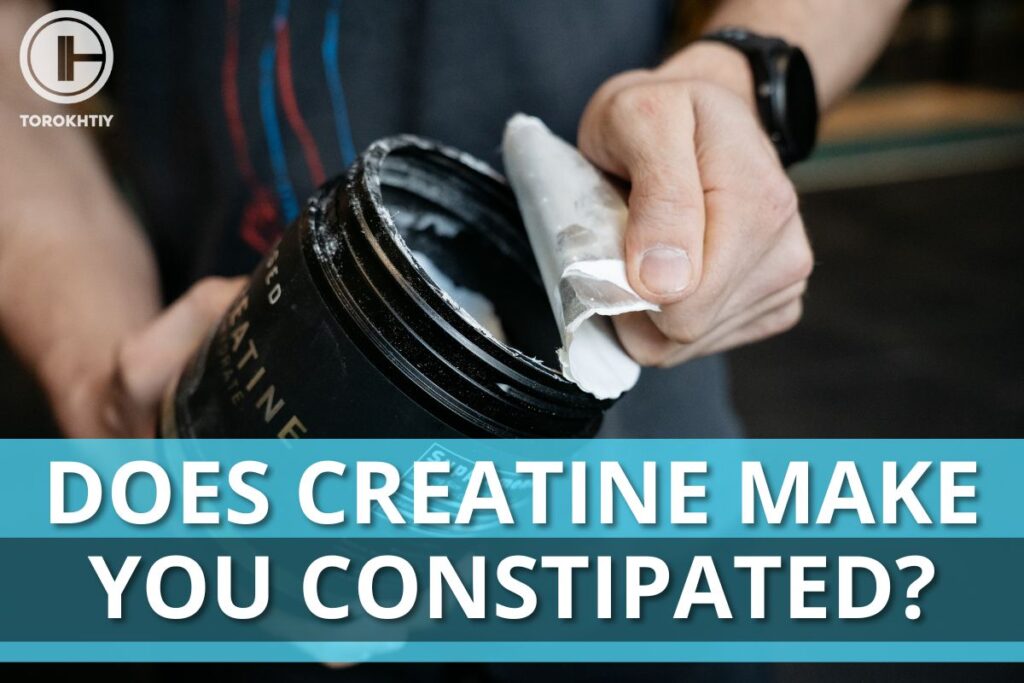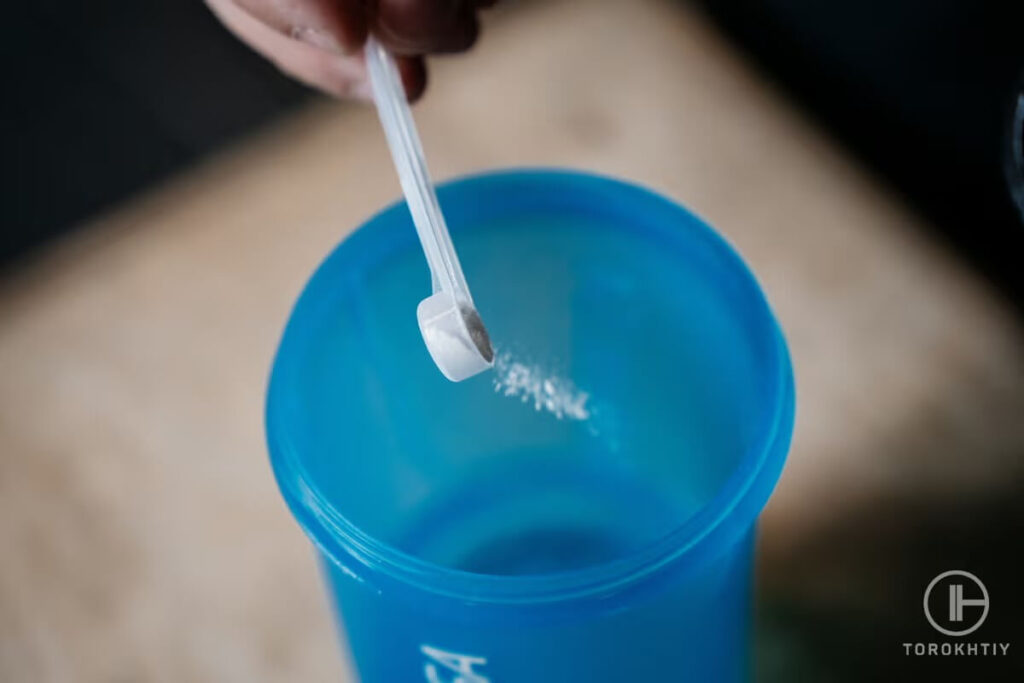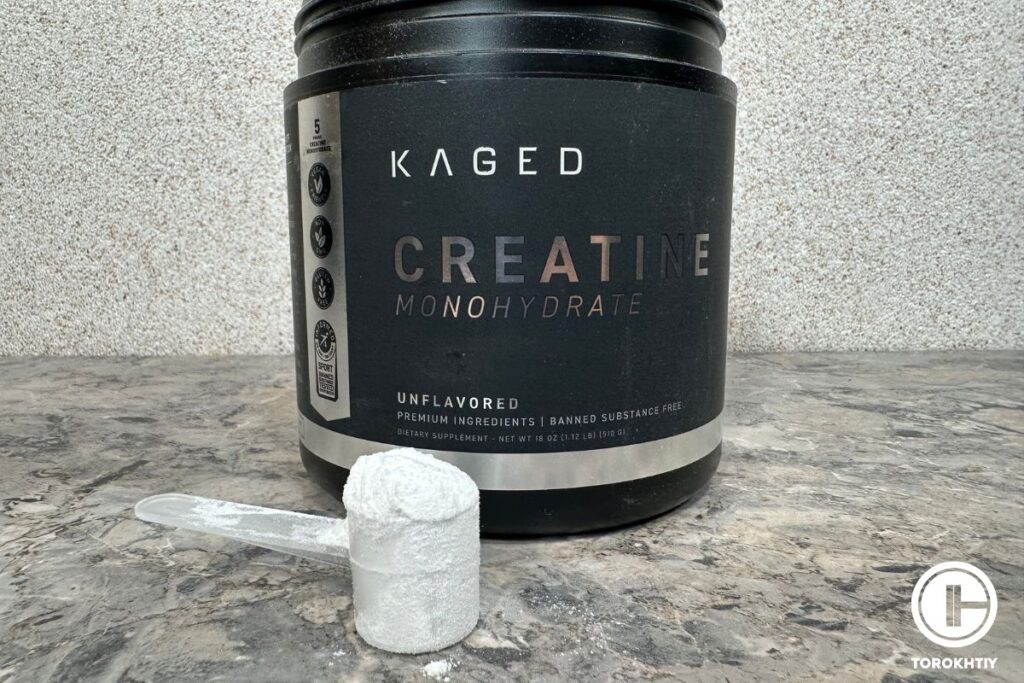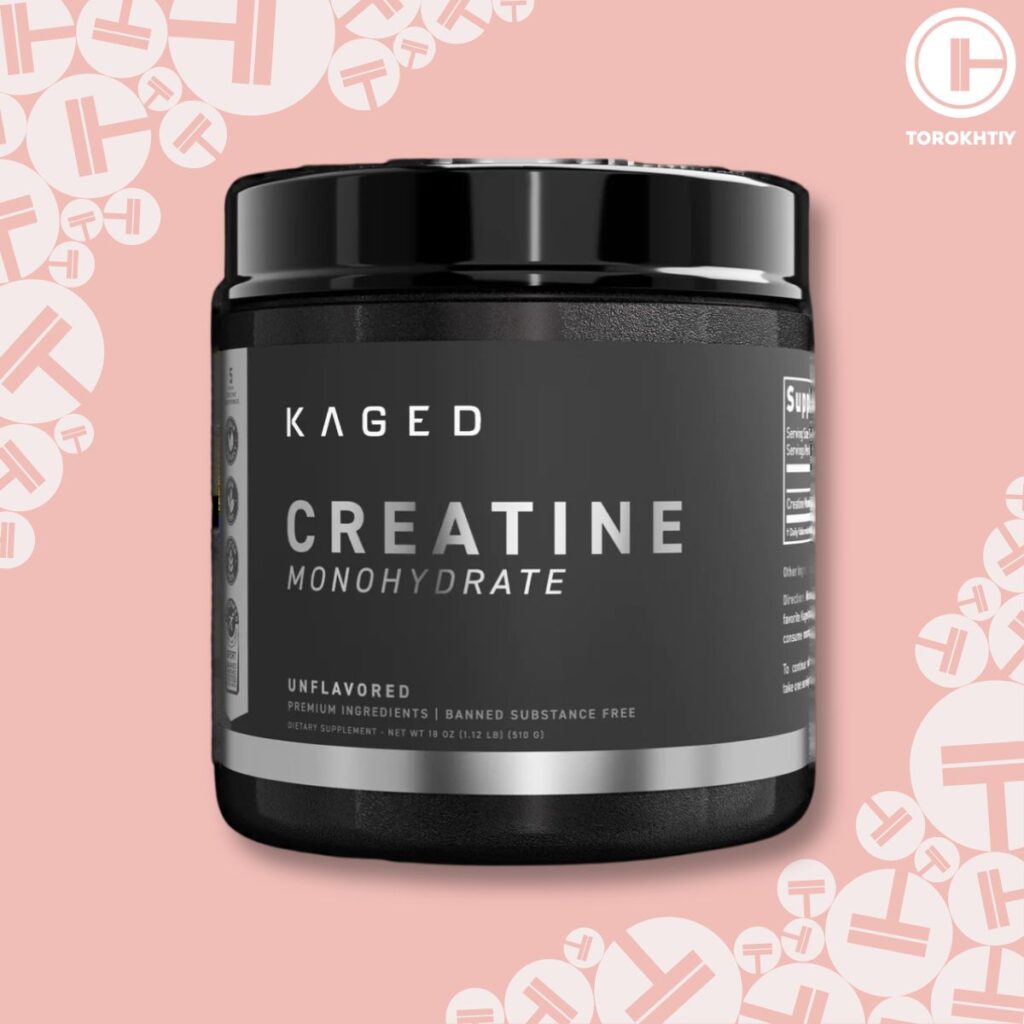Does Creatine Make You Constipated? Is It the Reason?
Author:
Unlock your full potential by engaging with our experts and community! Have questions about your fitness journey or looking for expert advice on weightlifting techniques? Don’t hesitate — leave a comment below and Camila Parente Santos will provide a personalized answer and insights to help you reach your goals.
Torokhtiy is reader-supported. Some links are affiliate links, and we may earn a commission at no extra cost to you. See our disclosure page for details.
From our research and experience, there’s no reason to believe creatine will make you constipated.
However, it may cause some other gastrointestinal symptoms, namely bloating and an upset stomach, usually when taking a high loading dose of 20g.
Therefore, these issues will most likely be resolved by lowering the dose to a more standard maintenance dose of 3-5g a day. We’ll be taking a closer look at creatine and digestion below!
Does creatine make you constipated? There’s no reason that creatine would make you constipated. However, it may affect your digestion via bloating and an upset stomach, usually when taking a “loading dose” of 10-20g/day. These side effects will usually be alleviated by taking a more reasonable dose of 3-5g/day.

Creatine Supplementation and Digestive Health
Below we’ll be taking a closer look at creatine supplementation and digestion. As you’ll see, while creatine may moderately affect your digestion, it is generally considered very safe, and most side effects can be mitigated through a lower dose like 3-5g/day, and higher water intake.
1. What is Creatine and How it Works in the Body
Creatine is an amino acid that is mainly used in the body for ATP production. It is either synthesized by the body through methionine, glycine, and arginine or found in the diet through animal products. It is commonly used as a sports supplement which leads to your muscles becoming saturated with the nutrient, leading to greater high-intensity exercise performance and recovery.

2. Safety of Creatine Supplementation
Creatine supplementation is widely regarded to be completely safe in the vast majority of people. Creatine causes slightly increased water retention, which is where many of its side effects seem to stem from. These include bloating, headaches, and dry mouth, all of which appear to be alleviated by increasing water intake.
It’s worth noting that you may want to exercise more caution with creatine if you have any pre-existing kidney condition. In this case, we recommend consulting with your doctor before beginning supplementation with creatine.
Does Creatine Make You Constipated?
So, does creatine cause constipation? Based on existing research and personal experience, there’s no reason to believe that creatine will make you constipated.
If you notice constipation while using creatine, this is likely more related to your diet than creatine intake. Creatine can cause some minor issues with the GI tract, mainly related to bloating, which we’ll be covering down below. However, these issues can likely be solved by simply upping your water intake.
How Creatine Can Affect GI Tract
Creatine will mainly affect your GI tract through bloating. This is a common side effect, especially when first beginning creatine supplementation. Bloating is likely caused by a combination of increased water retention and a lack of water intake. These symptoms are typically minor and can be alleviated by increasing your water intake.
Managing Digestive Health During Creatine Supplementation
If you’re wondering how to stop creatine constipation, there are a few things you can try. Especially if you’re constipated, fiber intake and hydration may be the core issues. If you’re experiencing an upset stomach, bloating, or other symptoms, you may also just be taking too much creatine.
1. Fiber Intake and Hydration
First, consider how much fiber you’re eating throughout the day. The USDA recommends adult women get at least 25g per day, while men should shoot for 38g per day (women and men over 50 only need 21g and 30g respectively). With the average American eating around 10-15g a day, this may be the cause of constipation.

Similarly, a lack of hydration is commonly associated with constipation. Aim to drink at least 35ml/kg of body weight a day (about 2-3 liters for most people) to help with this issue. By dialing in your nutrition and hydration, you should be able to alleviate most side effects associated with creatine.
2. Form and Dosage of Creatine
If digestive issues persist with proper hydration and fiber intake, then creatine may be the root of the problem. We always recommend using creatine monohydrate over alternatives like HCl or Nitrate.
creatine dosage calculator
Loading Phase:
Maintenance Phase:
Also, there’s no need to take more than 3-5g of creatine per day. Taking any more than this may lead to more severe gastrointestinal issues. While “loading phases” of 10-20g of creatine per day will help saturate your muscles quicker, high doses like this are more likely to cause gastrointestinal symptoms.
Creatine we Recommend – Kaged Creatine Monohydrate
Kaged Creatine Monohydrate
- Supplement Type: Creatine
- Best For: Building Muscles, Increasing Strength, Muscular Endurance, High-Intensity Performance, Recovery
- Suitable for Vegans: Yes
- Added Sugar: 0g
- Price per Serving: ~$0.35
- Servings per Package: 100
- Recommended by Athletes: Andrea Somer, Colt Nichols, Kris Gethin
If you’re struggling to find a high-quality creatine supplement, we recommend giving Kaged’s Creatine Monohydrate a try. This is a single-ingredient monohydrate supplement that has 100 5g servings per container. This will last you around 3 months (or longer if you’re taking a 3g dose).

It’s also been certified by Informed Sport ensuring it’s been tested for harmful contaminants and banned substances. Finally, this supplement is very budget-friendly. At only ~$0.35 per serving, this is one of the most cost-effective creatine supplements available.
FAQ
Does Creatine Affect Your Poop?
With proper fiber intake, hydration, and a 3-5g/day dose of creatine, this supplement shouldn’t cause any constipation. Most gastrointestinal issues linked to creatine are most likely caused by improper hydration.
Is Creatine Good for Bowels?
Overall, if you’re using it properly creatine should have little to no effect on your bowels. If you experience any gastrointestinal side effects when taking creatine, these problems can most likely be fixed by drinking more water.
Does Creatine Make You Bloated?
Bloating is a common side effect of creatine. It’s likely caused by a combination of increased water retention and a lack of proper water intake. So, this issue will most likely go away if you up your water intake to at least 2+ liters per day.
Conclusion
Can creatine make you constipated? It’s highly unlikely.
Overall, if taken properly, creatine should not cause any constipation. Most side effects related to creatine are instead caused by a lack of proper hydration. If you’re experiencing bloating, headaches, or constipation, upping your water intake will likely solve the issue.
If you’re looking for a high-quality, budget-friendly creatine supplement, we recommend giving Kaged Creatine Monohydrate a try!
Have you ever taken creatine before? Did you notice any side effects? Let us know your thoughts in the comments below!
Also read:
- Can You Take Creatine Before Bed
- Does Creatine Make You Thirsty
- Can Creatine Bloat Your Face
- Does Creatine Increase Libido
- Does Creatine Make You Pee
- Does Creatine Break a Fast
References:
- Richard B Kreider, et. al, “ International Society of Sports Nutrition position stand: safety and efficacy of creatine supplementation in exercise, sport, and medicine” Journal of the International Society of Sports Nutrition volume 14, Article number: 18 (2017).
- Robin P. da Silva, et. al, “Creatine synthesis: hepatic metabolism of guanidinoacetate and creatine in the rat in vitro and in vivo,” Am J Physiol Endocrinol Metab. Feb; 296(2). (2009).
- Suguru Saito, et. al “Creatine supplementation enhances immunological function of neutrophils by increasing cellular adenosine triphosphate” Biosci Microbiota Food Health.; 41(4): 185–194. (2022).
- Penny, “The Pros and Cons of Creatine Monohydrate,” blogs.cuit.columbia.edu, https://blogs.cuit.columbia.edu/pa2117/2021/06/17/the-pros-and-cons-of-creatine-monohydrate/ (Accessed March 8, 2024).
- Angela Harter Alger, “8.2 Creatine,” Nutrition and Physical Fitness, https://pressbooks.calstate.edu/nutritionandfitness/chapter/8-2-creatine/ (Accessed March 8 2024)
- Katherine D. McManus, “Should I be eating more fiber”, Harvard Health Blog, https://www.health.harvard.edu/blog/should-i-be-eating-more-fiber-2019022115927 (Accessed March 8 2024)
- Photos are made by Torokhtiy Media Team.
Why Trust Us?
With over 20 years in Olympic weightlifting, strength training, nutrition coaching, and general fitness our team does its best to provide the audience with ultimate support and meet the needs and requirements of advanced athletes and professional lifters, as well as people who strive to open new opportunities and develop their physical capabilities with us.
By trusting the recommendations of our certified experts in coaching, nutrition, and sports training programming, as well as scientific consultants, and physiotherapists, we provide you with thorough, well-considered, and scientifically proven content. All the information given in the articles concerning workout programming, separate exercises, and athletic performance, in general, is based on verified data.
The product testing process is described in more detail here.
Camila has worked as a Nutritionist for 7 years. In addition to being a nutritionist, she is an amateur weightlifting athlete for 2 years. Camila has experience at Flamengo’s football base and in a food supplement company and currently provides services at a clinic. At the moment she is coursing a postgraduate study in Sports Nutrition.




Still have questions after reading our article? Unlock your full potential by engaging with our experts and community! Don’t hesitate — leave a comment below and Camila Parente Santos will provide a personalized answer and insights to help you reach your goals.